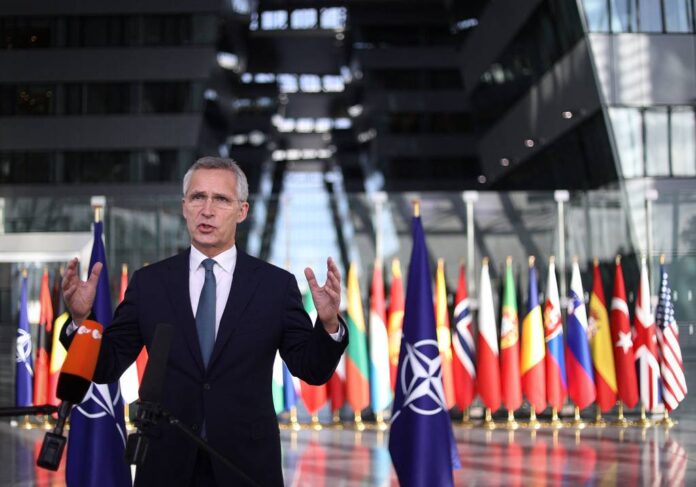
STUTTGART, Germany — NATO has officially kicked off two new efforts meant to help the alliance invest in critical next-generation technologies and avoid capability gaps between its member nations.
For months, officials have set the ground stage to launch a new Defense Innovator Accelerator — nicknamed DIANA — and establish an innovation fund to support private companies developing dual-use technologies. Both of those measures were formally agreed upon during NATO’s meeting of defense ministers last month in Brussels, said Secretary-General Jens Stoltenberg.
Allies signed the agreement to establish the NATO Innovation Fund and launch DIANA on Oct. 22, the final day of the two-day conference, Stoltenberg said in a media briefing that day.
He expects the fund to invest €1 billion (U.S. $1.16 billion) into companies and academic partners working on emerging and disruptive technologies.
“New technologies are reshaping our world and our security,” Stoltenberg said. “NATO’s new innovation fund will ensure allies do not miss out on the latest technology and capabilities that will be critical to our security.”
“We need to ensure that allies are able to operate the different technologies seamlessly, between their forces, and with each other,” he added.
Seventeen allied countries agreed to help launch the innovation fund. They include: Belgium, the Czech Republic, Estonia, Germany, Greece, Hungary, Italy, Latvia, Lithuania, Luxembourg, the Netherlands, Poland, Portugal, Romania, Slovakia, Slovenia, and the United Kingdom.
NATO will develop a minimum level of funding that will be required by every participating nation, and that level is being decided by those initial 17 allies, said David van Weel, assistant secretary-general for emerging security challenges.
He noted that there are “a variety of reasons” as to why the initial supporters stepped up, while the remaining 13 member nations did not. But he expects that more countries will sign up to participate in the fund before the alliance’s 2022 summit, he said during an Oct. 27 media roundtable.
“The bus hasn’t left the station to join the fund, and we expect more to join up,” he said.
Recommendations for NATO to launch such a venture capital fund, and a technology accelerator outfit reminiscent of the U.S. Defense Advanced Research Projects Agency (DARPA), were included in a 2020 report by NATO’s advisory group on emerging and disruptive technologies.
The alliance agreed to launch the DIANA accelerator at NATO’s annual summit, held last June in Brussels. Both the accelerator outfit and the innovation fund will have headquarters based in both North America and Europe, and several nations have already offered to host the facilities.
The plan is for a separate company to run the “day-to-day” operations of the innovation fund, but that partner has yet to be selected, van Weel said. “It is going to be professional venture capitalists that are going to run this fund — that could either be an existing company, or we would recruit an experienced general partner to run this,” he added.






































